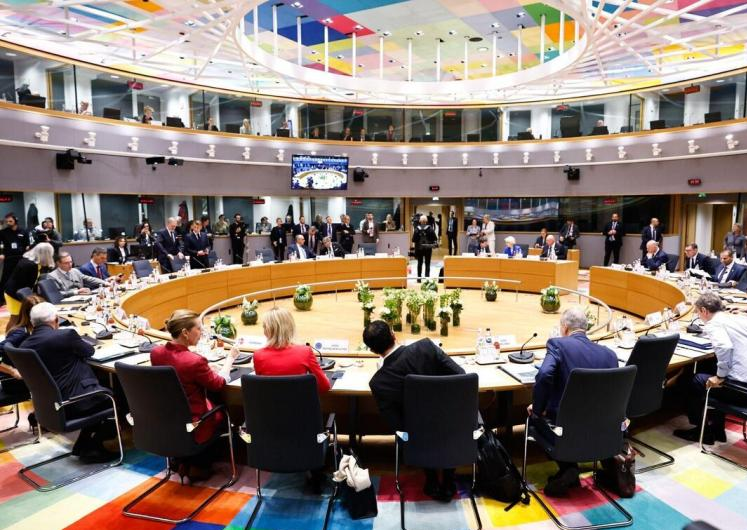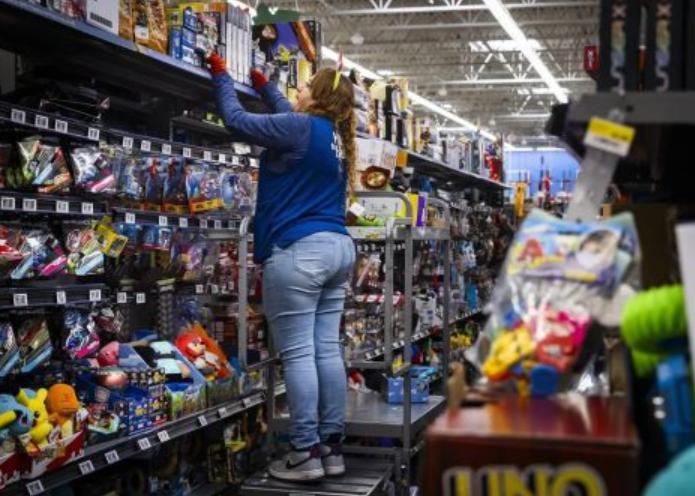
The EU has postponed its decision on whether to use the frozen assets of the Central Bank of Russia to assist Ukraine until December, which may threaten efforts to inject new funds into Ukraine in early 2026.
According to reports from Bloomberg and Xinhua News Agency, EU leaders held a meeting in Brussels on Thursday (October 23), and there was a fierce debate among EU member states over whether to use frozen Russian assets to provide loans to Ukraine, failing to reach an agreement.
As Belgium demands greater guarantees to avoid liability for risks related to the proposed 140 billion euro loan, as most of the frozen Russian funds are held in Belgium.
Ultimately, EU leaders asked the European Commission to propose a financing plan for Ukraine so that it could be considered at the next summit. European Council President Costa told reporters that he expected a final decision to be made by then.
Any further delay could cause a setback for Ukraine, as it needs to obtain new funds by the beginning of 2026.
The official document adopted by the EU leaders' meeting shows that EU leaders reaffirmed their political, economic and military support for Ukraine, but the expression regarding financial assistance is significantly weaker than that in the previous draft text. The document requires the European Commission to "propose a fiscal support plan as soon as possible based on an assessment of Ukraine's financing needs" so that the issue can be reviewed again at the next EU summit.
The document also states that, in compliance with EU law, Russian assets should continue to be frozen until the Russia-Ukraine conflict ends and Russia "compensates" Ukraine.
In her September "State of the Union Address", European Commission President Ursula von der Leyen proposed the establishment of a "compensation loan" mechanism, planning to use Russia's frozen assets as collateral to provide Ukraine with a total loan of approximately 140 billion euros. This plan has received support from Germany, France and the Baltic states, but Belgium and the European Central Bank are cautious about it, believing that there are still significant risks in terms of international law and the financial stability of the Eurozone.
Belgian Prime Minister David Dwecver said before the summit that he would "do everything in his power" to block the 140 billion euro loan plan unless the EU met Belgium's "reasonable demands". He demanded that the 27 EU member states "fully share the risks" in the "compensation loan" scheme and ensure that if funds need to be repaid to Russia in the future, other member states should also bear joint and several financial responsibilities. According to European media reports, De Wever expressed strong opposition to the loan plan at the meeting.
Hungarian Prime Minister Viktor Orban said in an interview with Hungarian media on the 23rd that Hungary does not support the use of the gains generated from Russia's frozen assets because Russia has warned that it will take retaliatory measures. Moreover, if the EU confiscates Russia's frozen assets, no country will deposit its foreign exchange reserves in EU financial institutions again in the future.
After the Ukraine crisis escalated comprehensively in February 2022, Western countries froze about 300 billion US dollars of Russia's overseas assets. Among them, the European Union froze assets worth approximately 200 billion euros of the Central Bank of Russia. Approximately 90% of the Russian assets frozen within the European Union are controlled by the European Bank for Settlements, whose headquarters is located in Belgium.

A new survey released in the United States shows that in the context of rising prices and growing concerns among the public about the economic outlook of the country, there is a coexistence of frugality and differentiation.
A new survey released in the United States shows that in th…
By the end of 2025, the situation in the Middle East resemb…
According to Channel NewsAsia, international oil prices hav…
On Sunday, US President Donald Trump Trump met with Ukraini…
Officials in the Trump administration, speaking on Fox News…
In 2025, the Trump administration reshaped the global trade…